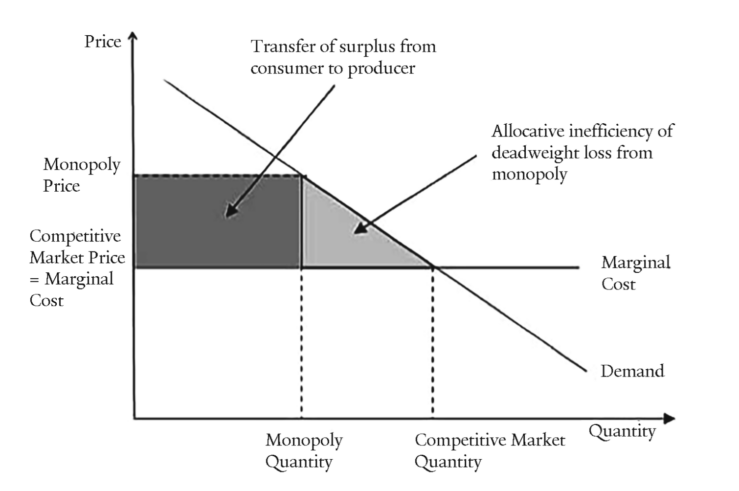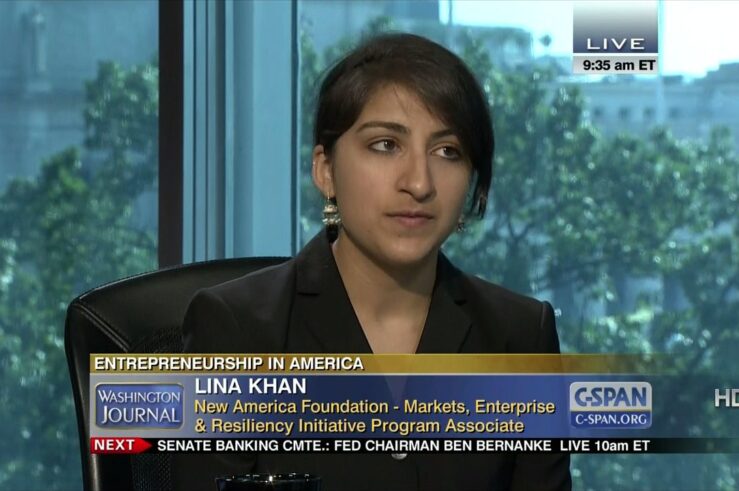Showing archive for: “Antitrust Populism”
Toward a Dynamic Consumer Welfare Standard for Contemporary U.S. Antitrust Enforcement
For decades, consumer-welfare enhancement appeared to be a key enforcement goal of competition policy (antitrust, in the U.S. usage) in most jurisdictions: The U.S. Supreme Court famously proclaimed American antitrust law to be a “consumer welfare prescription” in Reiter v. Sonotone Corp. (1979). A study by the current adviser to the European Competition Commission’s chief ... Toward a Dynamic Consumer Welfare Standard for Contemporary U.S. Antitrust Enforcement
Does the Market Know Something the FTC Doesn’t?
During the exceptional rise in stock-market valuations from March 2020 to January 2022, both equity investors and antitrust regulators have implicitly agreed that so-called “Big Tech” firms enjoyed unbeatable competitive advantages as gatekeepers with largely unmitigated power over the digital ecosystem. Investors bid up the value of tech stocks to exceptional levels, anticipating no competitive ... Does the Market Know Something the FTC Doesn’t?
Amazon Italy’s Efficiency Offense
Early last month, the Italian competition authority issued a record 1.128 billion euro fine against Amazon for abuse of dominance under Article 102 of the Treaty on the Functioning of the European Union (TFEU). In its order, the Agenzia Garante della Concorrenza e del Mercato (AGCM) essentially argues that Amazon has combined its Amazon.it marketplace ... Amazon Italy’s Efficiency Offense
5 Thoughts on the Senate’s Proposed Platform Self-Preferencing Ban
A bipartisan group of senators unveiled legislation today that would dramatically curtail the ability of online platforms to “self-preference” their own services—for example, when Apple pre-installs its own Weather or Podcasts apps on the iPhone, giving it an advantage that independent apps don’t have. The measure accompanies a House bill that included similar provisions, with ... 5 Thoughts on the Senate’s Proposed Platform Self-Preferencing Ban
Old Ideas and the New New Deal
Over the past decade and a half, virtually every branch of the federal government has taken steps to weaken the patent system. As reflected in President Joe Biden’s July 2021 executive order, these restraints on patent enforcement are now being coupled with antitrust policies that, in large part, adopt a “big is bad” approach in ... Old Ideas and the New New Deal
Going Back to Antitrust Basics
Advocates of legislative action to “reform” antitrust law have already pointed to the U.S. District Court for the District of Columbia’s dismissal of the state attorneys general’s case and the “conditional” dismissal of the Federal Trade Commission’s case against Facebook as evidence that federal antitrust case law is lax and demands correction. In fact, the ... Going Back to Antitrust Basics
What Lina Khan’s appointment means for the House antitrust bills
Her appointment also comes as House Democrats are preparing to mark up five bills designed to regulate Big Tech and, in the process, vastly expand the FTC’s powers. This expansion may combine with Khan’s appointment in ways that lawmakers considering the bills have not yet considered. This is a critical time for the FTC. It ... What Lina Khan’s appointment means for the House antitrust bills
Breaking Down House Democrats’ Forthcoming Competition Bills
Democratic leadership of the House Judiciary Committee have leaked the approach they plan to take to revise U.S. antitrust law and enforcement, with a particular focus on digital platforms. Broadly speaking, the bills would: raise fees for larger mergers and increase appropriations to the FTC and DOJ; require data portability and interoperability; declare that large ... Breaking Down House Democrats’ Forthcoming Competition Bills
Four Reasons to Reject Neo-Brandeisian Critiques of the Consumer Welfare Approach to Antitrust
In the battle of ideas, it is quite useful to be able to brandish clear and concise debating points in support of a proposition, backed by solid analysis. Toward that end, in a recent primer about antitrust law published by the Mercatus Center, I advance four reasons to reject neo-Brandeisian critiques of the consensus (at ... Four Reasons to Reject Neo-Brandeisian Critiques of the Consumer Welfare Approach to Antitrust
The Forgotten Strand of the Anti-Monopoly Tradition in Anglo-American Law
Admirers of the late Supreme Court Justice Louis Brandeis and other antitrust populists often trace the history of American anti-monopoly sentiments from the Founding Era through the Progressive Era’s passage of laws to fight the scourge of 19th century monopolists. For example, Matt Stoller of the American Economic Liberties Project, both in his book Goliath ... The Forgotten Strand of the Anti-Monopoly Tradition in Anglo-American Law
The Limits of Rivalry
I am left wondering, however, if he’s misdiagnosed the problem – or at least whether the cure he offers would be seen as sufficient by those most vocally asserting that antitrust is failing. And, of course, I recognize that his objective in writing this book is not to bring harmony to a deeply divided debate, ... The Limits of Rivalry
The Dangerous Implications of Changing Antitrust Presumptions
One of the key recommendations of the House Judiciary Committee’s antitrust report which seems to have bipartisan support (see Rep. Buck’s report) is shifting evidentiary burdens of proof to defendants with “monopoly power.” These recommended changes are aimed at helping antitrust enforcers and private plaintiffs “win” more. The result may well be more convictions, more ... The Dangerous Implications of Changing Antitrust Presumptions










